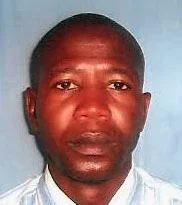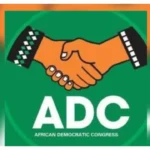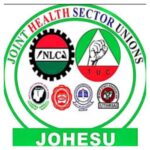Afolabi Gambari
Hypersensitivity can best describe the Presidency’s media unit these days. This is so much so that the unit has apparently primed itself to not let anything go without reacting to it, no matter how trivial such is. It seems it wouldn’t really matter what is reacted to; just the reaction alone would do.
No sooner did media reports on September 28 reveal that a former minister, Prof Jerry Gana, had said that former president Goodluck Jonathan would contest for the 2027 presidential election on the banner of the People’s Democratic Party (PDP) than the Presidency’s media office sprang into action to denounce the reports. It would not matter that Gana had spoken for himself and not for the PDP. Nor would it matter that the scholar-politician had been quoted out of context. Nor would it also matter that Jonathan had, before the,n expressed no interest whatsoever in returning to power after he was defeated in his reelection bid of 2015 by, according to him, the people he trusted. Nor would it even matter that the reports on Gana were fake through and through. As far as the Presidency was concerned, it was worth reacting to.
Whether the reaction was borne of the desire for jobbing or plain idleness is a matter for conjecture or debate. What is not debatable, however, is that the signatory to the reaction and Senior Special Adviser to President Bola Tinubu on Media, Mr Bayo Onanuga, is an elevated journalist who combines circumspection with his trade and, of necessity, should know what to pay attention to while minding his principal.
But Onanuga went overboard completely, even employing theatrics where seriousness ought to be deployed for effect, in line with the matter concerning the most elevated sector of national life, that is, the Presidency.
Although the presidential spokesperson is well aware that the Independent National Electoral Commission (INEC) has yet to officially flag off campaign for the 2027 election, he ascribed his hasty action to what he called ganging up “by the desperation of the opposition. If there is opposition at all in Nigeria today, it is an opposition in disarray. Perhaps, Onanuga, despite being well-positioned to know this fact, just decided to ignore it to present the Tinubu administration as a victim. He sneaked in William Shakespeare into his release nonetheless, saying there is a cacophony of voices against his principal, most of which are “full of sound and fury, signifying nothing”. All of these voices, he said, are despite the “glaring giant strides” of his principal.
Onanuga’s target, to be sure, was Prof Gana, who he said was “moving to draft former president Goodluck Jonathan into the 2027 presidential race on the platform of the discredited People’s Democratic Party (PDP), which bequeathed a legacy of economic ruins, after 16 years of bad governance” and deluding himself by asserting that Jonathan would defeat Tinubu to reclaim power after 12 years. Short of calling Gana a comedian in the mould of Ali Baba and the likes, Onanuga issued a warning to Jonathan to be wary of “politicians of Jerry Gana’s ilk” who are out only to “satisfy their personal, political, religious and ethnic interests”.
Yet, the presidential spokesperson said Jonathan “reserves the right to run if he wishes as it is his inalienable right to contest the presidency again”, stressing that Tinubu will “wholeheartedly welcome him if he decides to enter the race”. Only to contradict himself thus: “But Jonathan will have his date in the court of the land. Indeed, the jury will determine whether Jonathan, who was sworn in twice as president, satisfies the constitutional requirements and is eligible to contest the presidency and be sworn in, if successful, for a third term in office.”
He let out his real intention: “Jonathan will also have his encounter with the people as to whether he has anything new to offer after his disastrous six years, for which they voted him out in 2015.” In other words, and in Onanuga’s reckoning, Jonathan was a disaster.
Perhaps, without knowing it, Onanuga veered into the blame game that became a past time during the Muhammadu Buhari regime, a past time that the Tinubu regime should have eradicated, going by its “Renewed Hope Agenda” mantra. Hear him: “We cannot forget in a hurry how Jonathan’s regime, devoid of any clear economic agenda, engaged in frivolous spending, ran the economy aground and put the country in dire straits. The nation’s economic downturn, which President Tinubu is working very hard to overcome, actually began under Jonathan. The Jonathan administration severely damaged the economy, and all key indicators declined under his watch. Under him, the so-called business moguls allocated foreign exchange to import fuel, simply pocketing the dollars without importing anything. Jonathan and his National Security Adviser, Col. Sambo Dasuki (rtd), freely distributed security funds to friends and cronies.”
From a spokesperson, Onanuga switched to a managerial role for the election campaign: “In 2010, Jonathan inherited a total of $66 billion, of which $46 billion was in foreign reserves and $20 billion in the noble-but-abused Excess Crude Account. By 2015, when the people democratically removed him from office, the foreign reserves had fallen below $30 billion, and the Excess Crude Account had been depleted to $2 billion, despite generating record revenue from crude oil sales that the country had never achieved in more than 25 years combined.”
In case any one had also forgotten, hear Onanuga again: “It is on record that between 2010 and 2013, crude oil sold for an average of $100 per barrel. By December 2014, however, the Jonathan-led Federal Government could no longer pay salaries to Federal Civil Servants. At least 28 states across the country owed workers huge salary arrears.”
In positioning his principal above all comers, including Jonathan, of course, Onanuga also said: “President Tinubu has taken bold decisions over the last 28 months to reset the economy, removing the ruinous fuel subsidy and abolishing multiple exchange rates, which paved the way for arbitrage to flourish. He has stabilised the economy in slightly over two years in office. In 2025 Q2, the Gross Domestic Product grew by 4.23%, the highest in four years, outpacing the 3.4% projected by the International Monetary Fund. Inflation decreased to 20.12% in August 2025, the lowest level in three years. The foreign reserves stand presently at $42. 03 billion. The Naira has virtually stabilised. Investor confidence in our economy has been restored, and investors are betting on Nigeria.”
Summing up, he said: “In plain language, the nation has turned the corner and our people have started reaping the gains of the bold reforms instituted by the Tinubu administration.” Many would argue that Onanuga exaggerated with “started reaping the gains”, especially as he didn’t bother spelling out the “gains” meticulously.
But despite suggesting earlier that the courts would scuttle Jonathan’s ambition, Onanuga again said: “Jonathan and others are welcome to the 2027 race. They broke the economy before, but millions of Nigerians, who will not easily forget the recent past, will not allow them to return and run it down again.” Is Onanuga really sure of “millions of Nigerians” in this context, in view of the reality on the ground, suggesting millions of ordinary Nigerians now yearn for the return of Jonathan? Better still, is life worth living for the people today than it was during the Jonathan era? By the way, what if Gana resurfaces and says he was misquoted on Jonathan or Jonatham himself says “count me out”? How would Onanuga then feel, having dissipated his energy on mere speculation?







